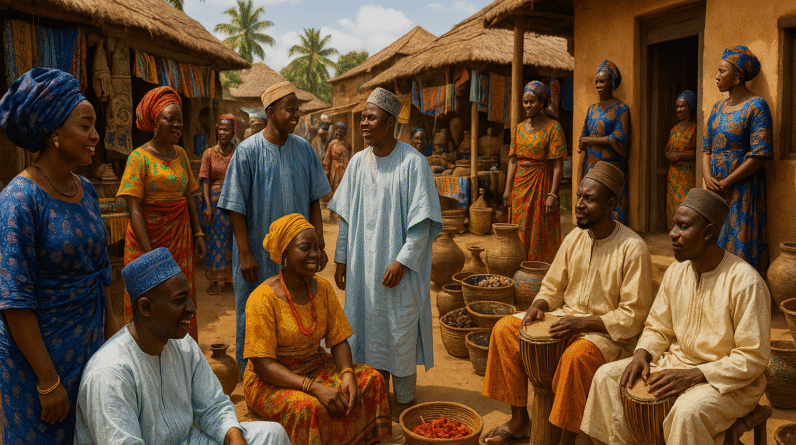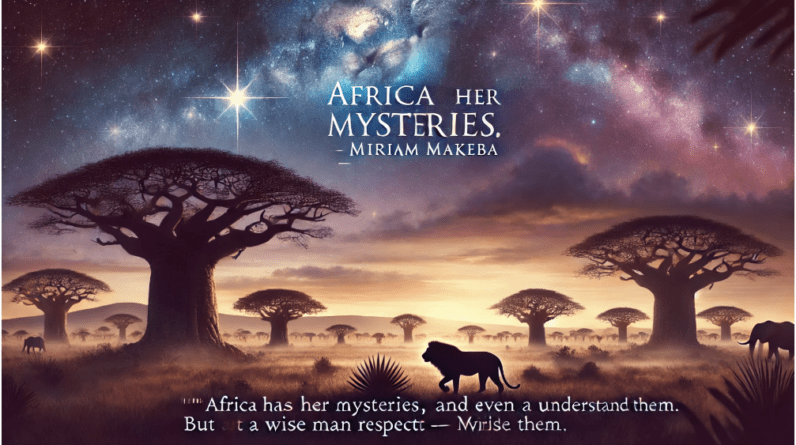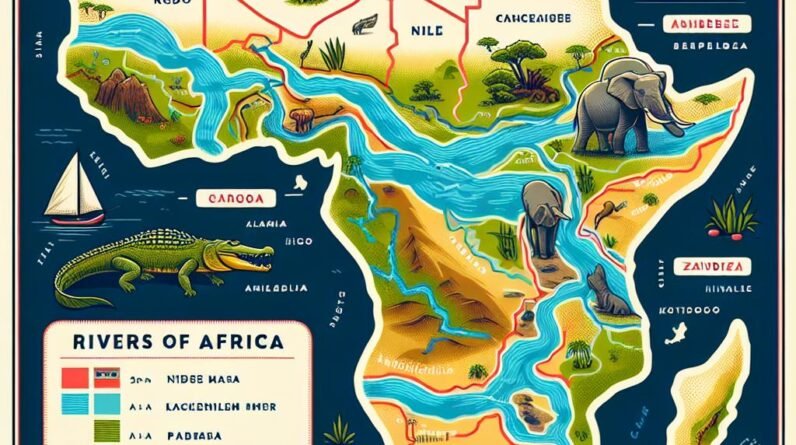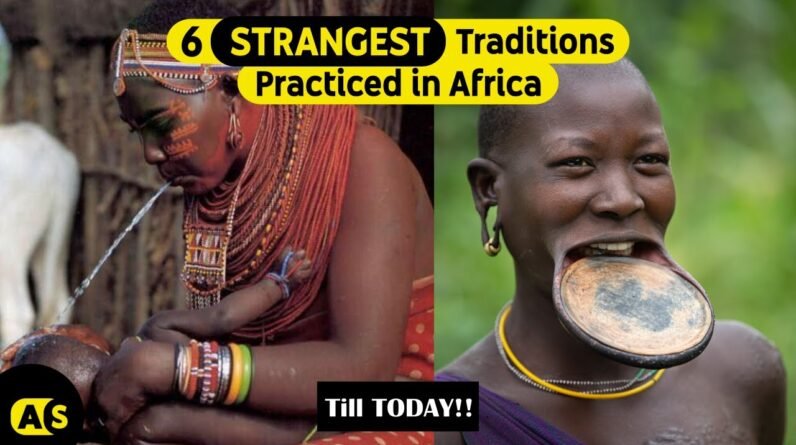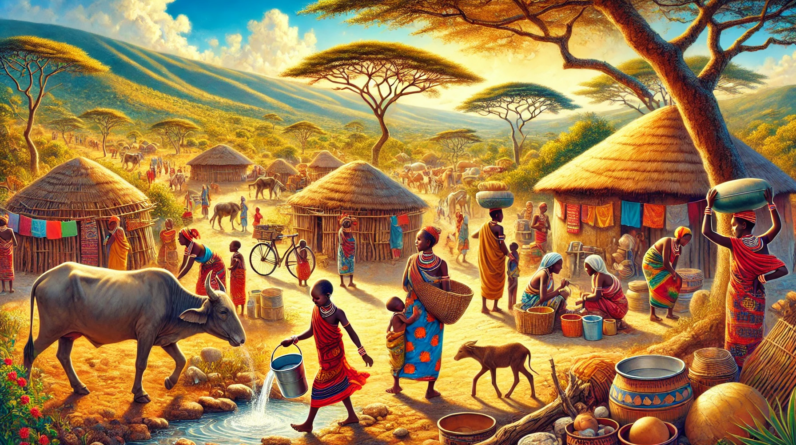
Exploring the Culture of Ghana
Exploring the Culture of Ghana. Have you ever wondered about the vibrant and rich culture of Ghana? If you’re looking to learn more about the traditions, customs, food, and more, this article is for you! Let’s delve into the diverse culture of Ghana and all it has to offer.
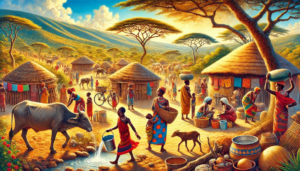
Overview of Ghana
Ghana is a country located in West Africa, known for its warm hospitality, diverse culture, and stunning landscapes. From bustling cities to serene beaches, Ghana has something for everyone. Its vibrant culture is a reflection of the various ethnic groups that call Ghana home.
The People
Ghanaians are known for their warmth and friendliness towards visitors. You’ll often hear the phrase “Akwaaba,” which means welcome in the local language, Twi. Ghanaians take pride in their cultural heritage and are always eager to share it with others.
Languages
While English is the official language of Ghana, there are over 80 ethnic languages spoken throughout the country. Some of the most widely spoken languages include Twi, Ga, Ewe, and Hausa. Learning a few basic phrases in the local language can go a long way in connecting with the locals.
Traditional Ghanaian clothing is a vibrant and colorful reflection of the culture. The most common traditional attire for men is the “Kente” cloth, which is made from interwoven silk and cotton. Women often wear the “Kaba and Slit,” a two-piece outfit consisting of a blouse and long skirt.
Kente Cloth
Kente cloth holds special significance in Ghanaian culture and is often reserved for special occasions such as weddings, festivals, and ceremonies. Each color and pattern on the Kente cloth has a specific meaning, making it a unique and cherished garment.
Adinkra Symbols
Adinkra symbols are intricate and meaningful symbols that are often printed on clothing and fabrics. Each symbol has its own unique message or proverb, making it a popular choice for clothing designs and accessories.
Music and Dance
Ghanaian music and dance play a significant role in cultural celebrations and festivals. From traditional drumming to contemporary Afrobeat music, Ghana has a diverse musical landscape that appeals to a wide audience.
Highlife Music
Highlife music is a genre that originated in Ghana in the early 20th century and combines traditional Ghanaian rhythms with Western instrumentation. It often features upbeat melodies and lyrics that tell stories about everyday life and love.
Azonto dance is a popular Ghanaian dance style that gained international recognition in the early 2010s. It is characterized by fast-paced movements and infectious rhythm, making it a favorite dance choice at parties and celebrations.
Food and Cuisine
Ghanaian cuisine is a flavorful mix of spices, herbs, and fresh ingredients. From hearty stews to crispy fried plantains, there is no shortage of delicious dishes to try in Ghana.
Jollof Rice
Jollof rice is a popular Ghanaian dish made with rice, tomatoes, peppers, onions, and a blend of spices. It is often served with grilled meat or fish and is a staple at social gatherings and events.
Banku and tilapia is a traditional Ghanaian dish that consists of fermented corn dough (banku) and grilled tilapia fish. The combination of textures and flavors makes it a beloved dish among Ghanaians.
Festivals and Celebrations
Ghanaians love to celebrate their culture through colorful festivals and events that showcase their traditions and customs. From harvest festivals to religious celebrations, there is always something to look forward to in Ghana.
Homowo Festival
The Homowo Festival, also known as the “Festival of Harvest,” is celebrated by the Ga people in the Greater Accra Region. It is a time to give thanks for the harvest and to remember the hardships of the past.
Asafotufiam Festival
The Asafotufiam Festival is celebrated by the people of Ada in the Greater Accra Region to remember their warrior ancestors. It features drumming, dancing, and storytelling to commemorate their rich history.
Arts and Crafts
Ghana is known for its rich artistic heritage, with traditional crafts that are passed down through generations. From weaving to pottery, Ghanaian art is a reflection of the creativity and skill of its people.
Kente weaving is a traditional art form that has been practiced in Ghana for centuries. The intricate patterns and vibrant colors of Kente cloth make it a sought-after textile around the world.
Bead Making
Bead making is another popular craft in Ghana, with artisans creating intricate beadwork for jewelry, clothing, and accessories. Each bead is handcrafted and comes in a variety of colors and designs.
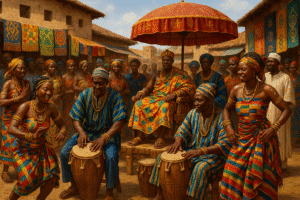
FAQ: Insights into Ghanaian Culture
What are the core values of Ghanaian society?
Ghanaian culture emphasizes respect, community, and hospitality. Elders are deeply revered, family units are tight-knit, and visitors are often treated like family—values that permeate both rural villages and urban centers.
How many languages are spoken in Ghana?
Ghana boasts over 80 local languages, though English is the official language. Among the most widely spoken are Twi, Ewe, Ga, Dagbani, and Fante—each tied to different ethnic communities and regions.
What role do festivals play in Ghanaian culture?
Festivals are crucial for preserving tradition and strengthening community bonds. They often commemorate historical events, seasonal changes, or ancestral spirits, with elaborate rituals, music, dance, and feasting.
Is traditional clothing still worn in Ghana?
Yes, especially during festivals, ceremonies, and formal gatherings. Fabrics like kente, batik, and smock (fugu) not only express identity but also convey messages through their patterns and colors.
How can tourists experience authentic Ghanaian culture?
To engage authentically, tourists should visit local markets, attend community events, explore historical landmarks like Elmina Castle, and participate in cultural festivals with local guides who provide context and storytelling.
What is Ghana’s approach to religion and spirituality?
Ghana is religiously diverse—Christianity, Islam, and traditional African religions coexist peacefully. Spirituality is deeply ingrained in daily life, often blending traditional beliefs with modern practices.
Are there cultural taboos travelers should know about?
Yes, avoid using your left hand for greetings or giving items, as it’s considered disrespectful. Dress modestly in rural areas, and always ask permission before taking photos, especially during sacred ceremonies.
What types of traditional music are popular in Ghana?
Highlife, Hiplife, and traditional drumming dominate the music scene. Instruments like talking drums, balafons, and shekeres are integral to ceremonies and storytelling performances.
What distinguishes Ghanaian cuisine?
Ghanaian food is rich in spices, starches, and local produce. Staples like fufu, banku, kenkey, and jollof rice are often paired with savory soups or stews made from groundnuts, tomatoes, or leafy greens.
How has Ghana preserved its culture amid modernization?
While cities like Accra are rapidly modernizing, Ghana maintains a strong connection to its roots through education, media, art, and festivals that highlight and celebrate its cultural heritage.
Would you like to generate SEO-friendly titles and descriptions?
Conclusion
Ghana’s culture is a tapestry of traditions, art, music, and cuisine that make it a truly unique and unforgettable destination. Whether you’re exploring the bustling markets of Accra or relaxing on the pristine beaches of Cape Coast, Ghana has something for everyone to enjoy. So pack your bags, immerse yourself in the vibrant culture of Ghana, and create memories that will last a lifetime.


